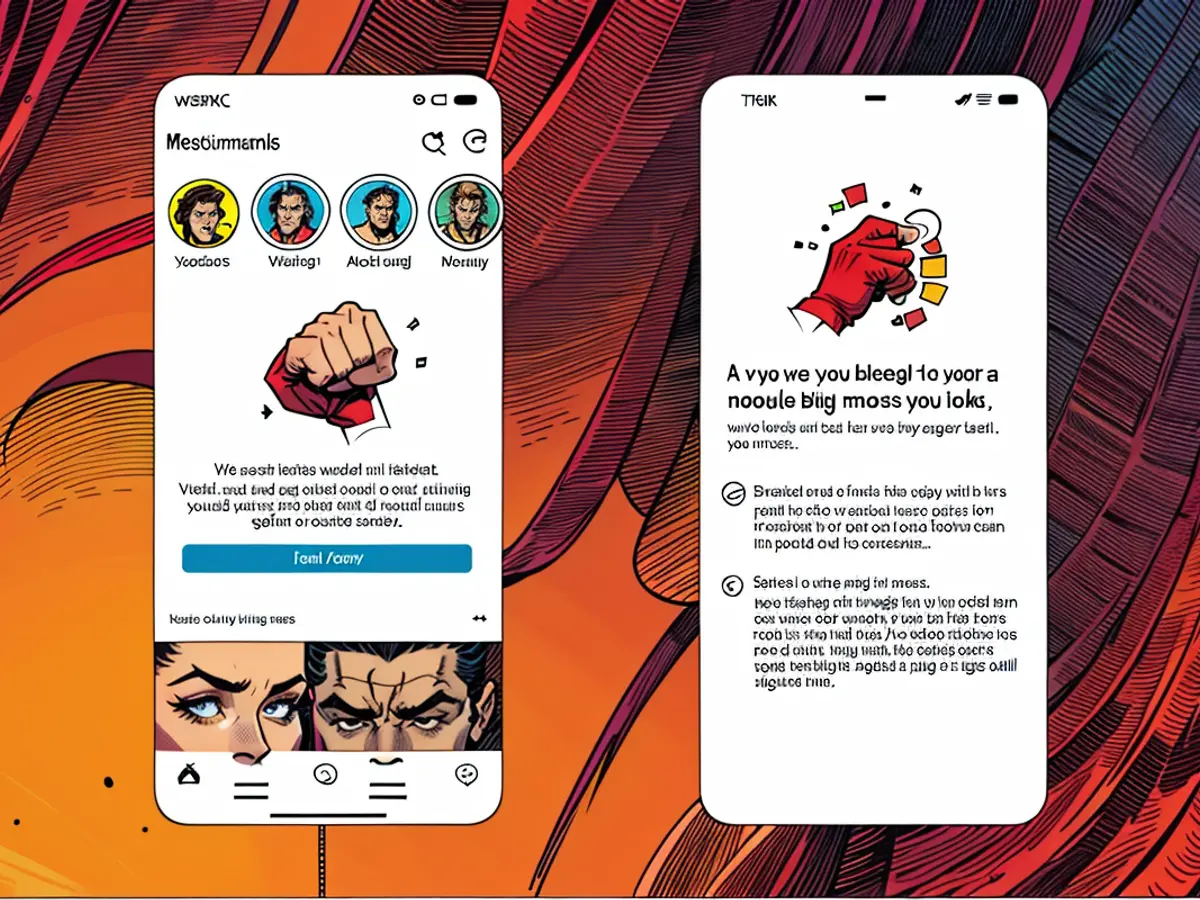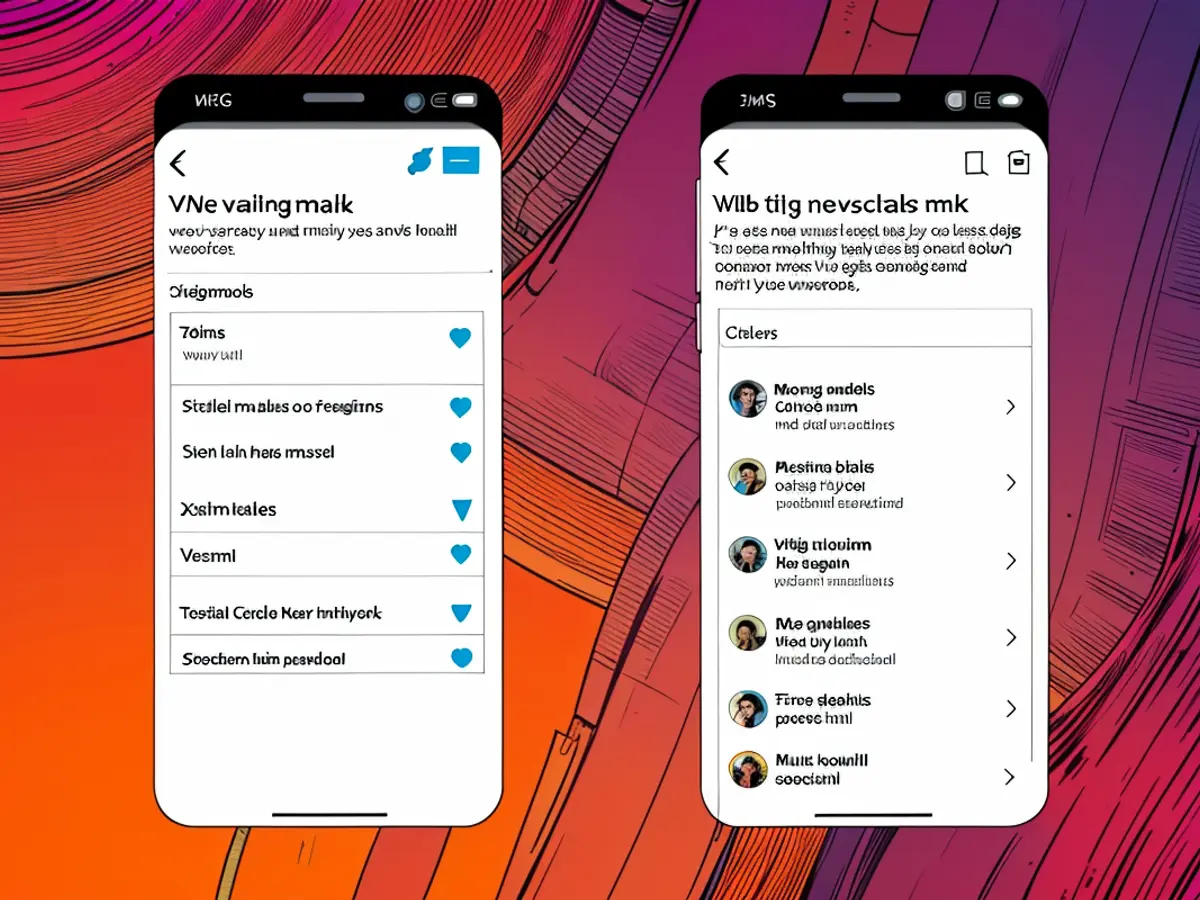Instagram will implement mandated safeguards, resulting in numerous adolescents being assigned secure accounts.
Instagram's adjustments in how it allows minors to utilize its platform arrive almost three years following the significant "Facebook Papers" expose, which sparked widespread concern over the platform's potential hazards for young users.
The updated measures aim to prompt teens towards seeking adult supervision through the app. Post-update, Instagram will automatically implement the new "teen accounts" settings for users below 18. Users aged 16-17 will have the option to change back to their preferred settings, but those between 13-15 will need parental consent for such changes.
The "teen accounts" settings are an expansion of over 30 mental health and parental monitoring tools Meta introduced previously, such as time-out prompts and restrictions on "inappropriate" content like posts about eating disorders. Despite these earlier adjustments, the company has consistently faced criticism for placing excessive burden of safety on parents and, at times, the teens themselves. Parental monitoring tools, for instance, relied on teens voluntarily informing their parents they are on the app.
Meta once again came under intense scrutiny after a former Facebook employee-turned-whistleblower, Arturo Bejar, testified before a Senate subcommittee in November that Meta's top executives, including CEO Mark Zuckerberg, had ignored warnings for years about the negative impact on teens on their platforms.
Accusations against the company in recent lawsuits have also alleged that Zuckerberg actively hindered teen wellness initiatives, knowingly ignored underage users' accounts, and enabled child predators.
At a Senate hearing in January, Zuckerberg publicly apologized to families claiming their children were harmed by social media.
Meta claims its recent modifications are aimed at addressing parents' primary concerns: who their teens are communicating with online, the content they're exposed to, and whether their time is being used productively.
Instagram's "teen accounts" renewal implies that young users' accounts, both new and existing, will autonomously be set to private and feature the strictest messaging options. The revised settings will enable teen users to receive messages only from individuals they are already connected with. Instagram will also restrict who can tag teens in photos or mention them in comments solely to individuals they follow.
Furthermore, teens will be placed within Instagram’s strictest content control settings. This adjustment minimizes the types of "sensitive" material teens can view on their Explore page and in Reels, such as posts promoting cosmetic procedures.

Instagram began implementing this strategy in a less extensive form earlier this year.
Teen users will also receive reminders encouraging them to log off after spending 1 hour daily on the app. At night, from 10 p.m. to 7 a.m., the app will automatically switch to "sleep mode," muting notifications and sending automatic replies to direct messages.
Instagram plans to apply these changes to teen accounts across select countries, including the US, starting next week.
The app will also launch new features on its parental supervision tool, allowing parents to monitor recent messages between their teen and other users, set daily time limits for teens' Instagram usage, block teens from using Instagram at night or during designated periods, and view the topics their teen has selected for content exposure on the app.
Expected changes will be implemented for all teen accounts in the US, UK, Canada, and Australia within the next 60 days, followed by broader international distribution later this year and next.
However, some of these modifications' effectiveness may be diminished by a straightforward reality: Meta cannot definitively verify whether the adult monitor is truly a parent, as opposed to an older friend or acquaintance. Meta does not conduct formal parental verification but relies on indicators like the adult user's birthday and the number of other accounts they supervise to determine their eligibility to oversee a teen's account.
Meta has long been criticized for its failure to proactively prevent minors from falsifying their age to bypass safety constraints when creating new accounts.
The company affirms it is developing artificial intelligence technology to identify potential teen accounts with inaccurate adult birthdates.

The tech giant Meta, known for its platform Instagram, is introducing new business strategies to address concerns regarding the app's impact on young users. These strategies include the implementation of stricter settings for "teen accounts," aimed at promoting parental involvement and protecting minors from inappropriate content.








